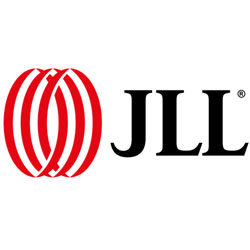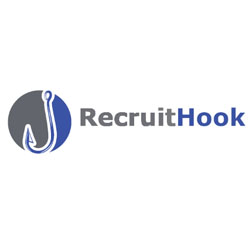Two ambitious and entrepreneurial friends build a financial firm — and company culture — suited for the next generation.
David Choi and Eric Panecki are not exactly modest about their ambition. “Our goal is to be the biggest, baddest private real estate equity firm out there.” But they just might be on a trajectory to substantiate that bold claim. The two former corporate finance guys — Choi, 25, worked in private equity and Panecki, 27, worked in a real estate hedge fund — founded Newark, NJ-based Leverage Companies in November of 2018and the growth has been rapid.
Despite Covid, Leveraged Companies increased revenue 450% from 2019 to 2020 with 52% of their annual revenue for 2020 occurred in Q4.
Leveraged Companies may attribute this meteoric growth to a well-planned and sound investment strategy, the way Choi and Panecki came to work together was kismet and the result of a mistaken identity.
A Fateful Sales Call
Choi and Panecki met back in their corporate days at a networking event and hit it off. They were both early on in their careers and had an entrepreneurial spirit. About a year after the event, both men struck out on their own and started lending short term capital. To get access to competitive lenders quotes, Panecki joined a lending site as a potential borrower. Choisearched the same site for prospects and saw Panecki, but didn’t put it together that this was his acquaintance from the networking event. So, Choi called him and tried to get his business. “I called this guy Eric and he was comparing and contrasting and asking me really hard questions,” said Choi. “He put me through the ringer. After about 30 minutes of this, I say, ‘I’m sure you’ve been getting these calls all day, here is why I’m different’ and I get into a Wolf-of-Wall-Street-type selling style. That’s when I realized who Eric was and I said, ‘why did you just waste 30 minutes talking to me?’”
After that fateful phone call, Choi and Panecki began helping each other close deals. A year after that sales call gone awry, they decided to officially partner up and start Leverage Companies out of a garage. While they’ve since moved their operation to much cooler digs, these two Jersey boys have no plans of moving out of the city. “Newark is our home,” said Eric. “Brick City is who we are.”
An Entrepreneurial Culture
Choi and Panecki may be the masterminds behind Leverage Companies, but they are very clear that the firm’s success is being built on their employees’ hard work. The firm has 30 employees – 16 are based in the U.S. and the rest are located in the Philippines, Mexico and Egypt.
As one might expect from a business founded by men in their 20s, the company culture is entrepreneurial and progressive.
The duo’s approach to hiring is based more on a candidate’s attitude and potential than on academic pedigrees and business school class rankings. “We came from humble beginnings and were very willing to give people a chance,” Panecki said.
They look for men and women who have something to prove and who have demonstrated they have something to live for beyond just themselves. “We’ve hired kids from Rutgers Newark who were working full time while going to school full time. They are putting in 80 to 90 hours per week and that shows they will work hard to achieve their goals.”
Thanks to their openness to finding talent wherever it may be, Choi met one of Leverage Companies’ best employees while he was pumping gas. “One day while I was at a gas station, I started talking to the attendant,” Choi said. “The guy told me he was going to school full time and working. I told him I was in real estate and he was very interested. He asked me lots of questions and I could tell this guy was a diamond in the rough. He had a hunger; he was coachable and eager. So, I called Eric and said, ‘Don’t laugh but I’m at the gas station and think I found someone for you.” The former attendant has been a Leverage Companies employee for more than a year and a half.
Choi and Panecki are building the company culture to reflect their belief in giving employees a level of autonomy. Their management style is to outline the company’s goals and let the employees find the best way to hit them. The founders want to support the entrepreneurial spirit in others. “You aren’t going toget this level of upside anywhere else,” Panecki said. “If you bust your butt and prove yourself, you have an opportunity to move up. And we aren’t cheap with equity.”
Choi adds, “Ownership is yours to own. If this company can’t function without you, it’s only fitting that you own a piece of the company.”
Fostering ownership mentality among employees may be where their management similaritites begin and end. Choi and Paneckidescribe themselves as yin and yang. Panecki identifies as “the grownup in the room” and admits that if it were just him at the helm, there would be too much structure and not enough fun. But if it was just David? “It would just be a big party,” Paneckireplied.
When the Party is Over
“We like to have a good time, but at the end of the day, we want to win,” said Choi. “As soon as we aren’t winning, it stops being fun. You can see a change when we miss goals and when Covid-19 hit, it was no longer a party. It was pretty intense, and we all had to get down to business.”
In March of 2020, the Leverage Companies’ workforce went all virtual and for three to four weeks, not a single deal was closed. Choi and Panecki recall feeling like they were just banging their heads against a wall trying to do business. While the firm took a substantial financial hit, they did not lay off any employees and gave bonuses. “We are a lot stronger as a company now,” said Panecki.
Trust and dedication increased as a result of banding together and supporting one another through the tough times. Deal volume has increased as well. “We were expecting a much larger growth this year but Covid definitely slowed us down,” Choi said. “We went from doing roughly 15 transactions per month near the end of 2019 across all verticals to doing between 30 and 45 per month currently.”
Don’t expect Choi and Panecki to spend too much time patting themselves on the back for navigating a nascent business through the national economic instability and a global pandemic. They’ve got too much work to do.
“We just set the bricks,” said Panecki. “We are just getting started.”









Comments are closed